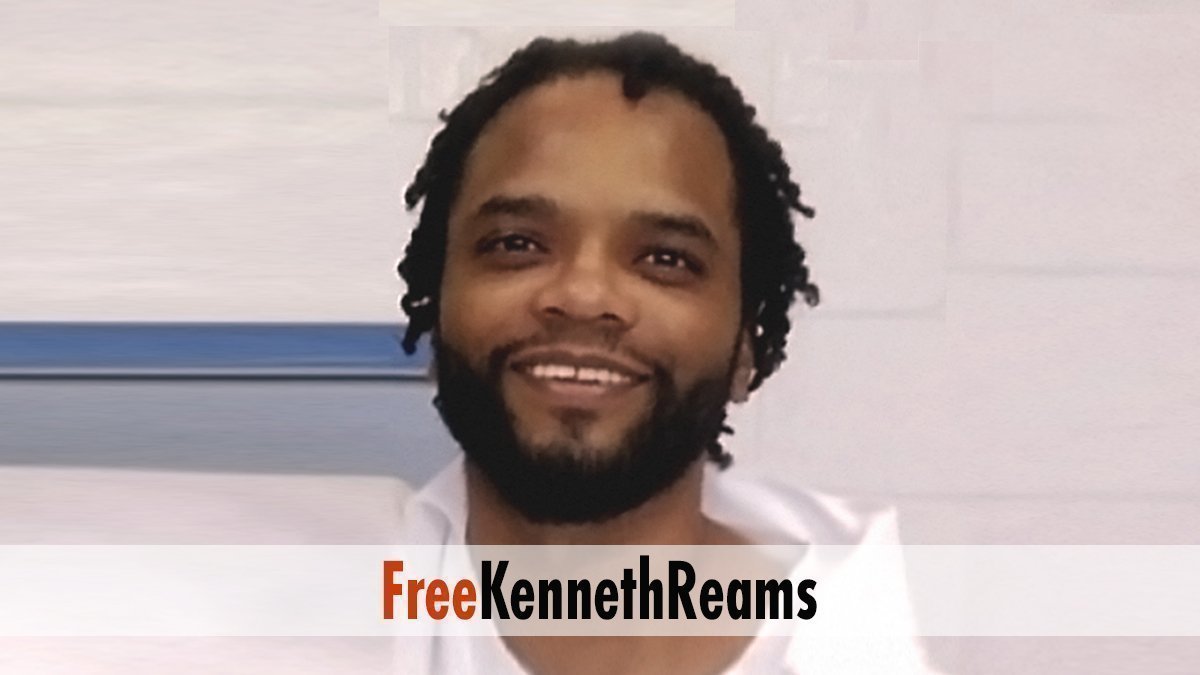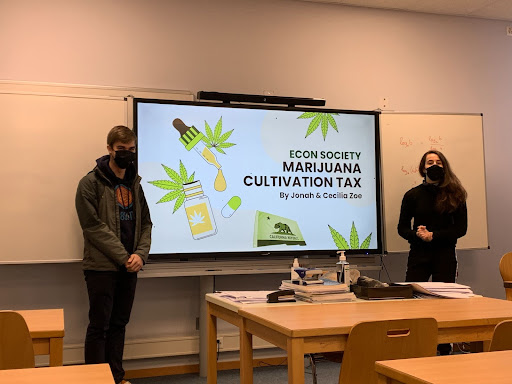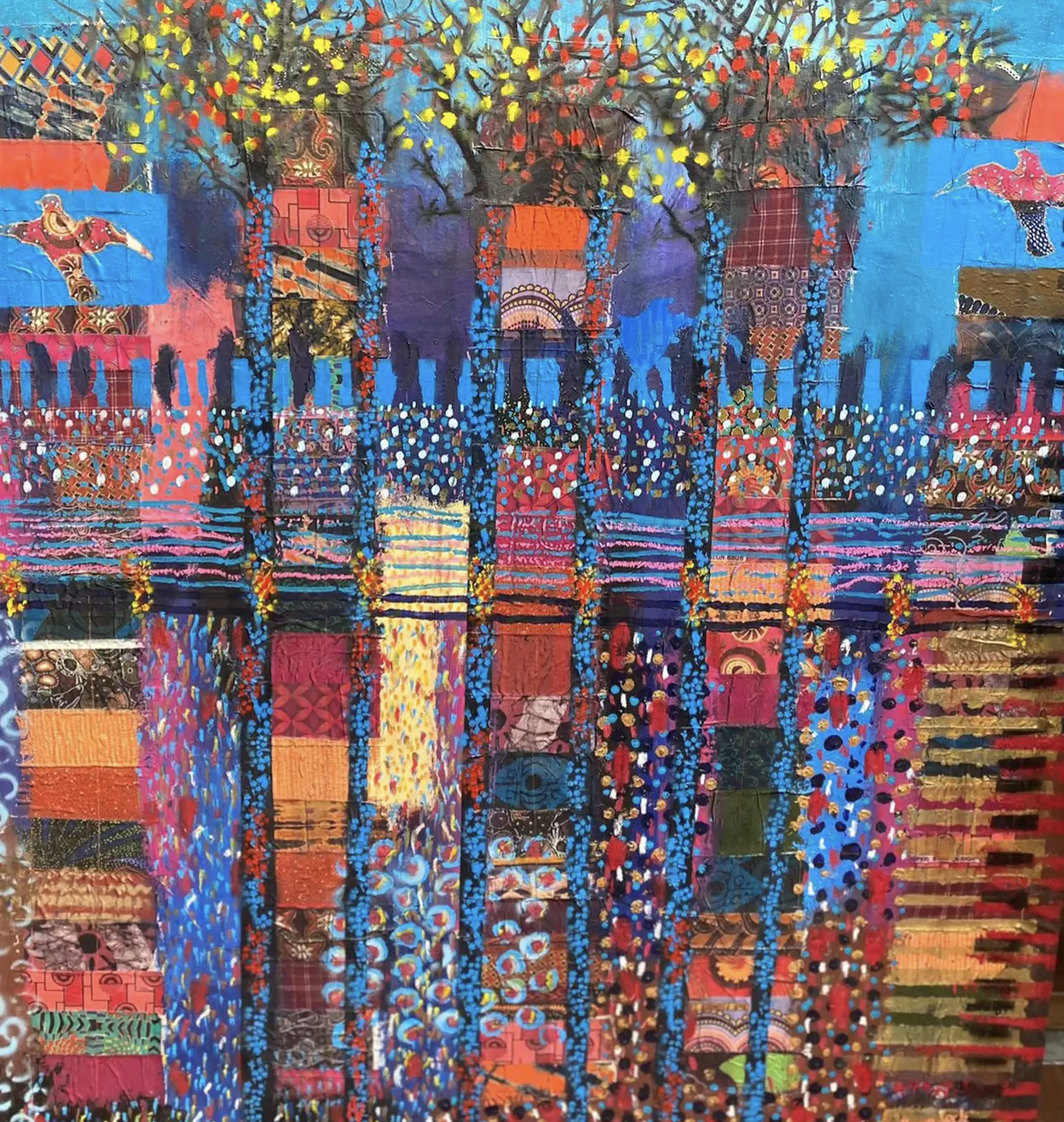By Kareem Gomersall (Year 12)
After logging off from a zoom call with Kenneth Reams with other students, parents and members of staff, I can’t help but ask myself how a man in such an unjust and seemingly hopeless situation is able to continuously maintain such a hopeful, kind and productive nature. By productive I don’t mean how many books he can read, nor do I mean how many paintings or sculptures he can produce; but how many people he can inspire. How can I say that he can inspire? Because I am sitting here writing this article.
As someone who has never set foot inside the United States (apart from a brief drive into Vermont from Canada), I can’t fathom how a justice system can justify the imprisonment of a man for capital murder when he didn’t pull any trigger, nor did he plan, or commit any murder. When also considering that this violation of basic dignity didn’t take place in a country where the justice system isn’t properly established, but in fact, it took place in a nation where the very notion of a modern justice system was sculpted, the issue becomes all the more shocking. This experience has made it crystal clear that a well-established and well-codified justice system does not mean an uncorrupted one, and it certainly does not mean an effective one.
As I’ve mentioned, I’m not American, and I am certainly yet to have been to prison in the US. But what I see happening from an ongoing political dialogue is that the justice system is entirely broken. It places revenue over rehabilitation, imprisons for the sake of imprisonment and murders under the pretence of correcting behaviour that it deems a danger to society. If you have a fixable issue with a car, do you take it to be repaired, or do you blow the whole thing up? Likewise, when a man like Kenneth Reams has been subjected to unimaginable trials in his life, and as a result of these struggles plays a role in a tragic crime that he did not directly commit, is he to be locked in solitary confinement for 23 hours a day for the remainder of his life?
When Kenneth was in his late teenage years, he and his friend wanted to find $60 to pay for a graduation cap and gown. The intention was not to kill. Kenneth’s friend shot the gun and took a plea deal, he was sentenced to life imprisonment. Kenneth on the other hand (who did not lay a finger on the gun), was sentenced to death – a sentence which has since been overturned. He is still in prison today, and there is a 23/24 chance that he is sitting in solitary confinement as you read this.
Kenneth Reams has flourished in prison. In fact, in my opinion, he is the very model of what the justice system should be doing. You can ask any one of the seventy-five people on the zoom call, and they will all tell you that the man we listened to is not one who would engage in such a horrible crime. He has flourished not because the prison system has led him to and he has not grown as a person because the state of Arkansas has nurtured him into a “productive member of society”, but because of his own astounding resilience and motivation. I am now convinced that the greatest argument for prison reform is a simple conversation with Mr Reams.
When discussing providing creative outlets to those in prison, he mentioned that you don’t know how many Picasso’s have gone unnoticed thanks to the lack of opportunity to express oneself creatively in the system. Whilst I like the analogy, I think that Picasso is completely removed from the situation. In reforming the system, we may find many more Picasso’s, but what would be more inspiring is if we found many more Kenneth Reams’s. The world greatly benefits from having an artist like Kenneth. He is able to inspire so many people the way that I know he has inspired me. I hope that one day the prison system will be able to produce many more scientists, writers, parents or teachers with the same spirit and kind nature as Kenneth Reams.
To show solidarity with Kenneth Reams, consider taking a moment to sign this petition.



